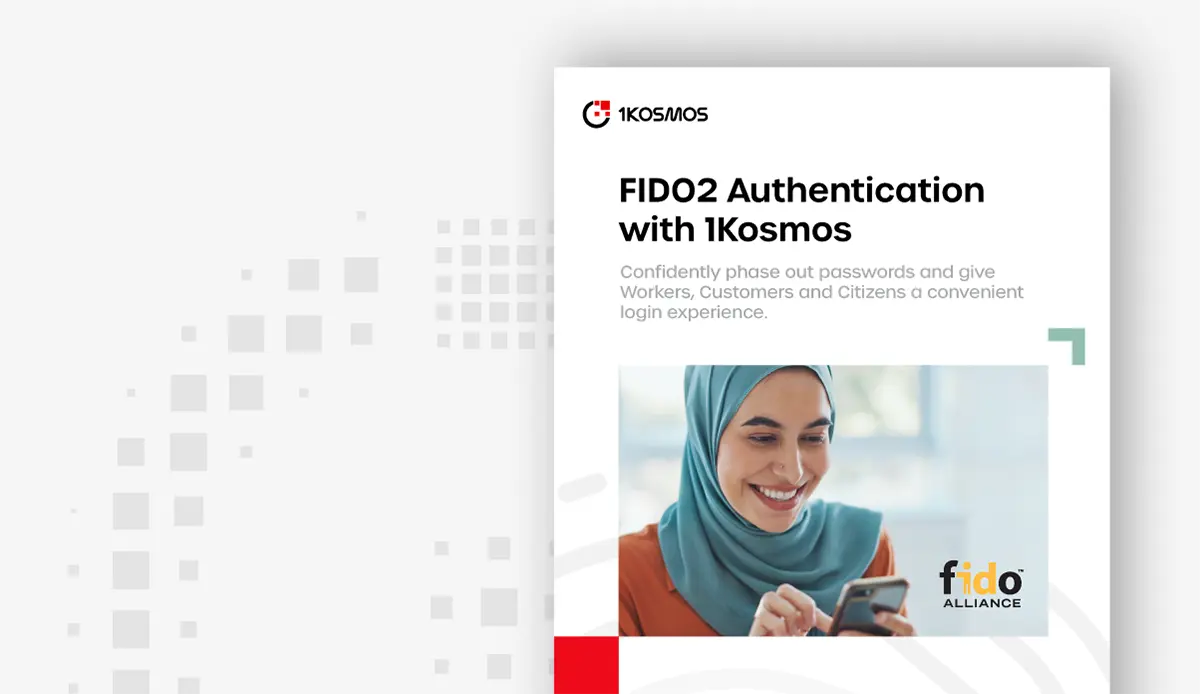What Is SIM binding? [How to Prevent Online Fraud]
SIM binding is growing in popularity due to the ease of use and the greater amount of security provided compared to PIN code verification.
What is SIM binding? SIM binding is a type of device binding where an individual uses their mobile phone and binds that phone to their SIM card. This provides for greater security in user authentication.
What Is Device Binding and How Does It Work?
Device binding is a security practice where a security token, used as proof of identity, is linked to a device trusted by the user and a service provider. Typically, devices, in this case, mean any device with a way to store digital information, which includes the following objects:
- Smartphones
- Tablets
- Smart Watches
- SIM Cards
- Laptops
- RF Transmitters
- EMV Chip Cards
An authentication token is a key that shows a security service that a device is trusted. Tokens may produce a one-time password validated by the authentication server or utilize some other form of identification like a hardware identification number.
These tokens generally fall into one of two categories:
- Hardware Tokens: These devices use a small, physical system to serve as the token and produce the OTP. These usually come in a USB key, a smart card, or a wireless device used in high-security enterprise contexts.
- Software Tokens: These tokens are installed on devices as an application or even inside another application like a web browser. Common forms of software tokens are identity authentication apps released by companies like Microsoft or Google that generate timed OTPs.
SIM binding is a form of hardware token security. A device, usually equipped with a dedicated application linked to an identity solution, will provide that app to detect the presence of SIM cards.
The SIM card is registered with the employer and their authentication provider and, if necessary, linked with additional authentication measures. The application then validates that user and device and uses the token to authenticate it whenever it attempts to access systems and resources.
What Are the Benefits of SIM Binding?
With cloud technologies, remote workers, and distributed systems becoming the rule rather than the exception, proper security is necessary. Hardware tokens provide several advantages to help administrators implement that security.
Some of the advantages of hardware tokens and binding include the following:
- Heightened Multi-Factor Authentication: Hardware tokens can serve as a secondary form of authentication that supplements technologies like passwords, SMS verification, or biometrics.
Furthermore, it intrinsically links SIM authentication with the typical biometric options available on modern smartphones, particularly fingerprint and facial scanning.
- Self-Service and Simplified Onboarding: Administrators can automate access provisioning for old employees and new ones without requiring those employees to undergo complicated onboarding that involves several steps and personnel.
- Continuous Authentication: In industries like finance and banking, administrators can ease the use of continuous authentication against risk-based identity management through device binding that can provide regular data streams of customer behavior to prevent fraud.
- Passwordless Authentication: With SIM binding and mobile authentication, most organizations can remove the need for passwords at all. Passwords are often the weakest point in terms of security, and your organization can bypass them altogether.
- Fraud Reduction: Binding can reduce fraud by requiring a physical device for authentication. Coupled with additional measures like identity proofing, an organization can avoid many fraud attempts that rely on gaps in identification and remote access.
- Technology Agnostic: Outside of having a SIM-connected device (which nearly every person has), the binding token can streamline authentication across several platforms, services, or user portals—all from the same device.
These improvements are possible because binding is a localized, physical form of authentication, superior to passwords. Furthermore, this kind of authentication can mitigate hackers taking control of accounts to gain access to private information—the hacker would still need the device in hand to authenticate.
To speak to these advantages, the Reserve Bank of India published their “Master Direction on Digital Payment Security.” They noted that existing token-based authentication (namely through SMS) was not, in and of itself, enough of a security measure to guarantee identity in a financial transaction.
Therefore, they mandated that any payment transactions in that jurisdiction must use an additional authentication method (for banks. The method must be “dynamic or non-replicable,” including device and SIM binding.
With this kind of guidance, the signal to the broader financial industry is that device-based authentication will become the norm, rather than the exception, in the world of online banking and finances.
1Kosmos SIM Binding and Passwordless Security
1Kosmos addresses three critical aspects of authentication: usability, compliance, and security. With a unique combination of passwordless authentication, binding for mobile devices, and decentralized identity management, we provide enterprise organizations with the authentication tools to meet the challenges of a modern workforce.
With 1Kosmos, you can rely on the following features:
- SIM Binding: 1Kosmos uses SMS verification, identity proofing, and SIM card authentication to create solid, robust, and secure device authentication from any employee’s phone.
- Identity-Based Authentication: We push biometrics and authentication into a new “who you are” paradigm. 1Kosmos uses biometrics to identify individuals, not devices, through credential triangulation and identity verification.
- Identity Proofing: 1Kosmos verifies identity anywhere, anytime and on any device with over 99% accuracy.
- Privacy by Design: Embedding privacy into the design of our ecosystem is a core principle of 1Kosmos. We protect personally identifiable information in a distributed identity architecture and the encrypted data is only accessible by the user.
Learn more about 1Kosmos SIM Binding, and sign up for our email newsletter to stay up-to-date on 1Kosmos products and services.
